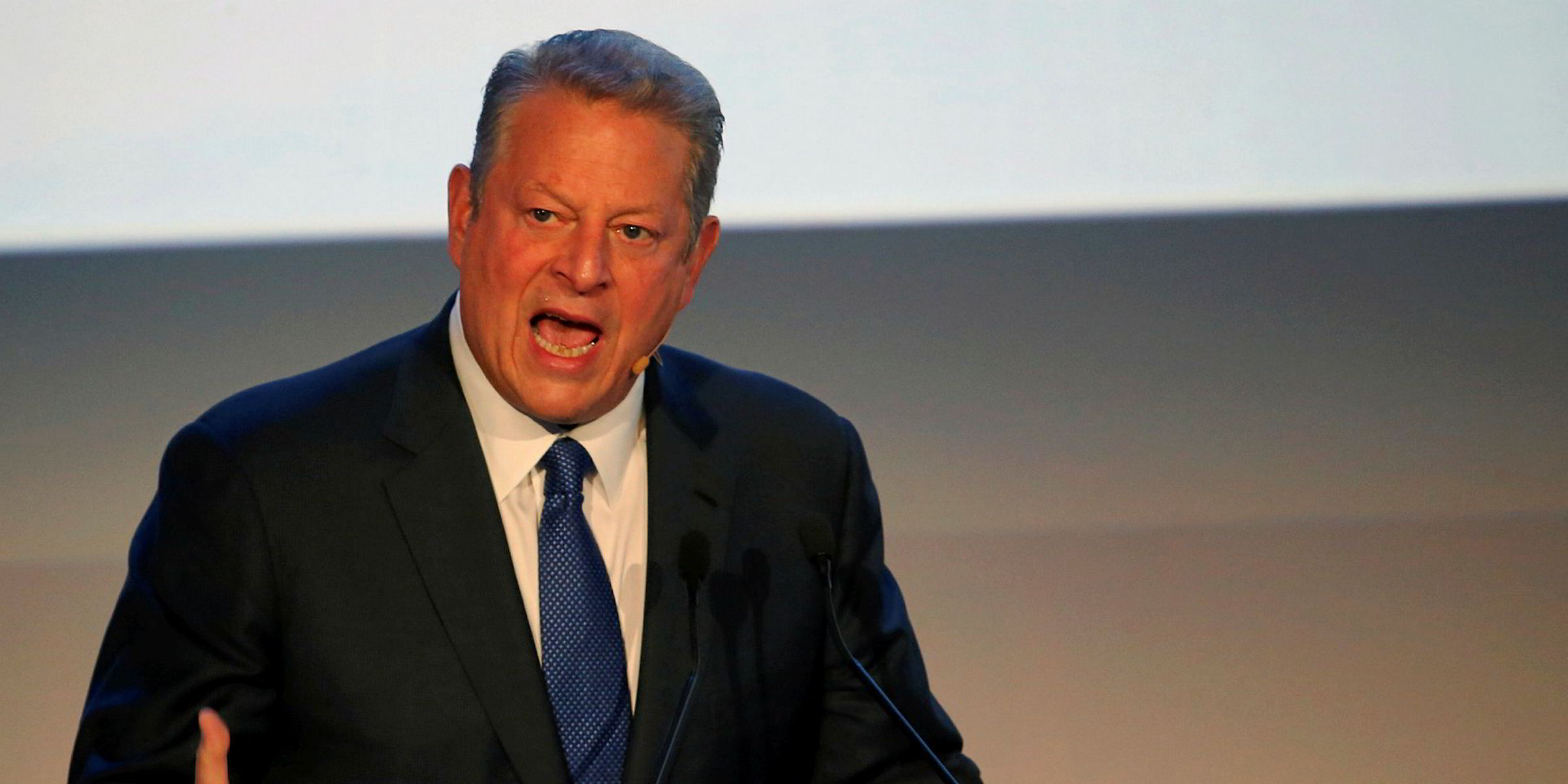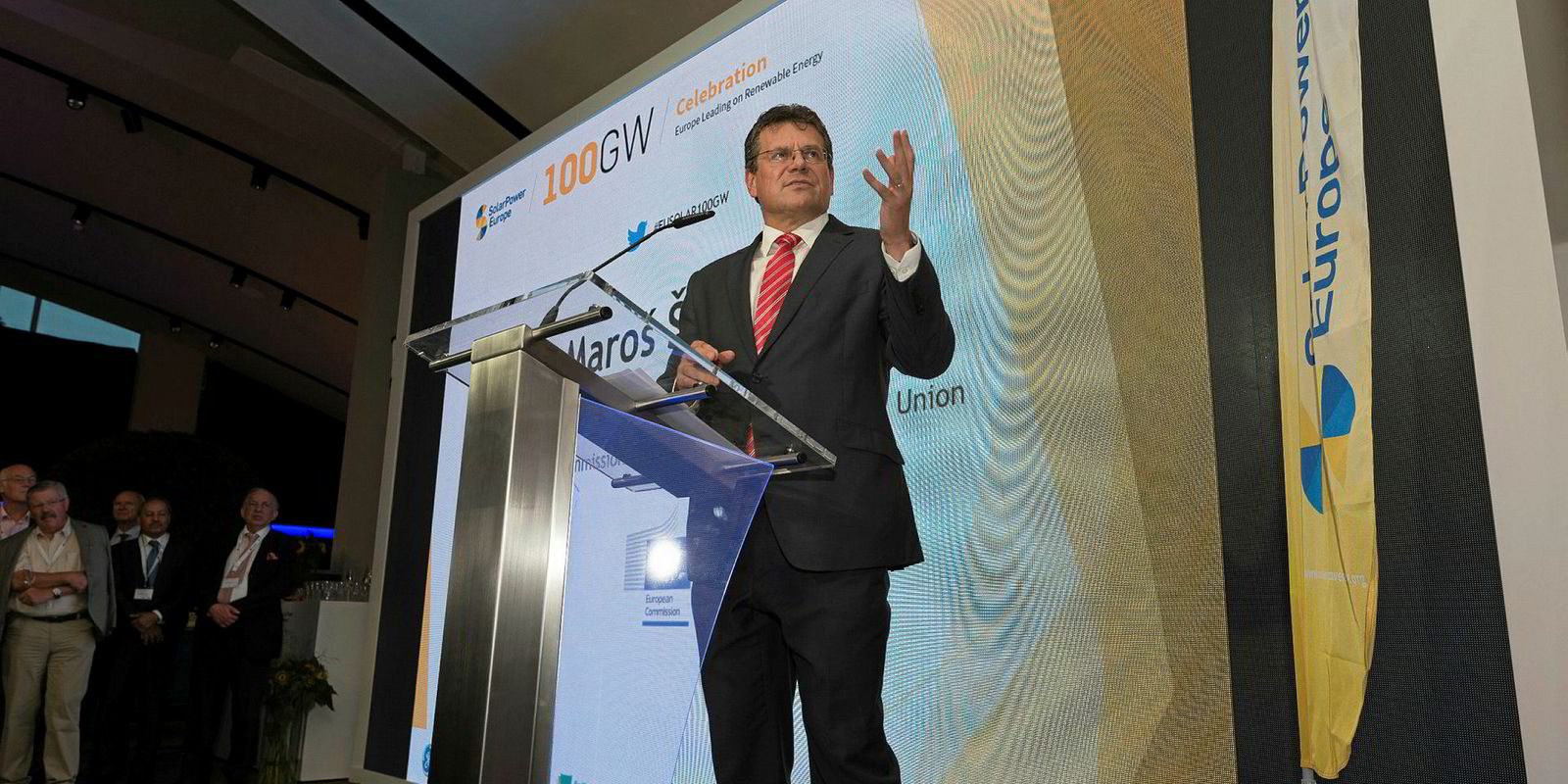This is an edited excerpt of an impassioned speech made by former US vice-president Al Gore on Thursday night at the Ashden Awards 2017 at the Royal Geographic Society in London.
When the president of my country was preparing to make his announcement about the Paris Agreement and we didn’t know what it would be, I was very worried that if he pulled the US out of the agreement then other countries, perhaps those not entirely enthusiastic about the Paris Agreement, would use it as an excuse for pulling out themselves. I can tell you that in the aftermath of that decision, there has been no such cascade of other countries — to the contrary. What I have seen and heard is an expression of solidarity, not only in all of the other countries of the world, but also of governors of states and mayors of cities and leaders of businesses in the US.
No one person can stop the climate movement or the sustainability revolution — we are going to win no matter what President Donald Trump says.
The Paris Agreement, I believe, is actually stronger today. I say that with all sincerity and conviction. Since the Paris Agreement was reached, many hundreds of coal plants have been cancelled in China and India and in quite a few other places. We saw just a few days ago the announcement that the sales of coal fell [in 2016] by a larger amount than ever in history. India just announced a major switch from its plans for a lot more coal-fired plants to a stunning increase in solar parks. And India just announced three weeks ago that within 13 years 100% of the vehicles in India must be electric vehicles. That is a dramatic and inspiring change.
So we can change and we must change… [but] will we change?
Just as the sustainability revolution should be understood in the context of the technological revolutions that came before it [the agricultural, industrial and digital revolutions], the climate movement should be seen in the context of the great moral causes that have transformed and improved the outlook for humanity.
In every one of the great moral movements there has been discouragement, there has been despair, there have been advocates who asked, “How long will this take? Is it ever going to succeed?” The abolition [of slavery] movement, which began more than 200 years ago here in this country met with such ferocious opposition that many felt it was a lost cause. But it prevailed. The women’s suffrage movement, in this country and my country, and around the world was met with “no”, “no”, “no” after “no”. But it prevailed.
The civil rights movement in my country; the anti-apartheid movement in South Africa, more recently the gay-rights movement in so many parts of the world — what all of these transformative movements have had in common is that they met with the same kind of ferocious resistance that led to despair on the part of many advocates.
The late Nelson Mandela once said: “It’s always impossible until it’s done.” We have seen people continue in spite of their concern that it might be impossible. During some of the bleakest days of the civil rights movement in my country, Dr Martin Luther King Jr was asked by one of his fellow advocates, “How long is this going to take?” and he famously answered: “How long? Not long, because no lie can live forever. How long? Not long, because the arc of the moral universe is long, but it bends towards justice.” And in every single case when the obfuscations and the side issues and the distractions were cleared away, what was left was a very simple and clear choice — a binary choice between what is right and what is wrong.
It was wrong to allow slavery to continue, it was wrong to deny women the right to vote, it was wrong to discriminate on the basis of skin colour or who you fell in love with, it was wrong to allow apartheid to continue, and when the central issue was thus framed in stark relief because of who we are as human beings, the outcome became foreordained and we chose what was right, and now in this case it is clearly wrong to destroy the prospects of living prosperously and sustainably on a clean Earth when we bequeath it to our children. It is wrong to use the sky as an open sewer, it is wrong to condemn future generations to a lifetime haunted by continual declines in their standard of living and give them a world of political disruption and all the chaos that the scientists have warned us about.
It is right to give them hope, it is right to give them a clean future and a safe and prosperous future and for those who say we may not have the will to change, always remember that the will to change is itself a renewable resource.



